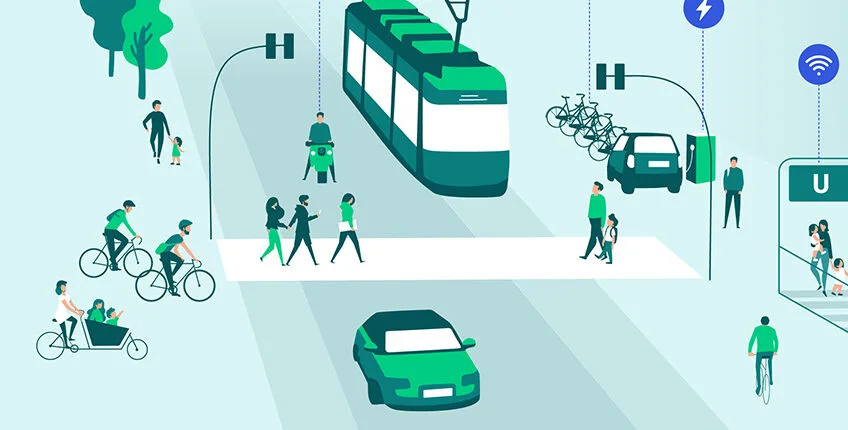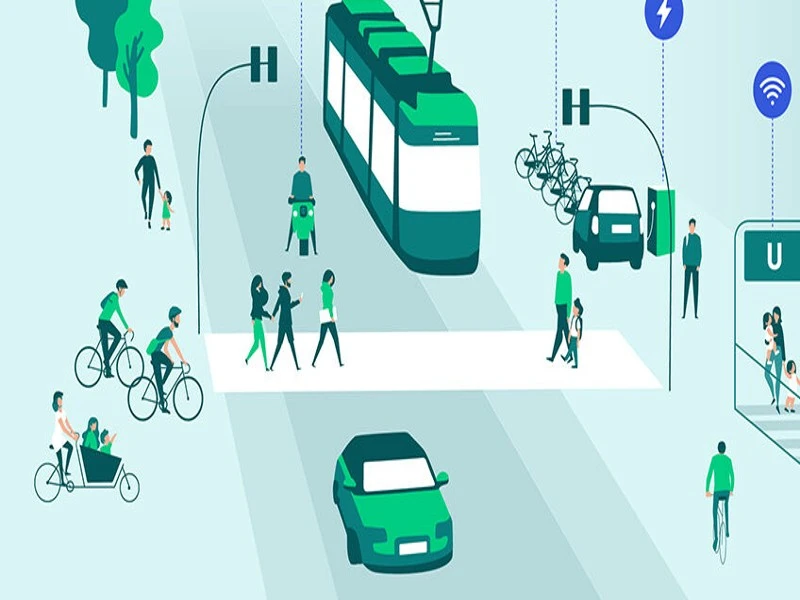
The internal combustion engine has powered our vehicles for over a century, but the climate clock is ticking. With rising concerns about air pollution and greenhouse gas emissions, the world is looking towards sustainable transportation solutions. But are we truly making progress? Let’s shift gears and explore the landscape of sustainable transportation.
Indicators Pointing Towards Green:
There’s positive movement on the sustainable transportation front:
- Electric Vehicle Boom: Electric vehicles (EVs) are no longer a niche market. Major automakers are investing heavily in EV development, with new models boasting impressive range and features. Government incentives in many countries are further accelerating EV adoption.
- Hybrid Momentum: Hybrid vehicles continue to be a popular choice for eco-conscious drivers, offering significant fuel efficiency improvements compared to traditional gasoline cars.
- Public Transport Push: Many cities are investing in expanding and improving public transportation infrastructure. This includes not just buses and trains, but also light rail systems and dedicated lanes for high-occupancy vehicles.
- Micromobility Mania: Bicycles, e-scooters, and e-bikes are taking center stage, particularly for shorter trips. Cities are increasingly creating designated lanes and parking spaces for these eco-friendly and space-saving options.
- Technological Advancements: Innovations in battery technology, autonomous vehicles, advanced biofuels, and hyperloop technology promise even greater strides towards sustainable transportation in the future.
Benefits of Sustainable Transportation: A Breath of Fresh Air
The transition to sustainable transportation offers a multitude of advantages:
- Environmental Champion: Reduced emissions from cleaner vehicles and less traffic congestion lead to cleaner air and a healthier planet.
- Energy Independence: Reliance on renewable energy sources like solar and wind power for EVs lessens dependence on fossil fuels.
- Economic Boost: The development and adoption of sustainable transportation technologies creates new jobs and stimulates green industries.
- Quieter Cities: Electric and hybrid vehicles generate significantly less noise pollution, creating a more peaceful urban environment.
- Healthier You: Reduced air pollution and a rise in cycling and walking contribute to a healthier population.
Challenges on the Road to Sustainability:
Despite the progress, hurdles remain:
- Range Anxiety and Charging Infrastructure: “Range anxiety,” the fear of running out of power before reaching a charging station, is still a concern for some EV drivers. Expanding and improving the charging infrastructure is crucial to ease this anxiety.
- Public Transport Accessibility: Not all areas have access to reliable and efficient public transportation systems. Investment in infrastructure and ridership initiatives is necessary to make public transport a viable option for everyone.
- High Cost of New Technologies: The upfront cost of EVs and other sustainable transportation options can be a barrier for some consumers. Government incentives and subsidies can help bridge this cost gap.
- Consumer Behavior and Habits: Shifting mindsets and ingrained habits takes time. Encouraging a cultural shift towards sustainable transportation options is key for long-term success.
The Road Ahead: A Sustainable Future Beckons
While challenges exist, the world is demonstrably moving towards sustainable transportation. By overcoming these hurdles through innovation, infrastructure development, and policy changes, we can create a cleaner and more sustainable future for all.
Latest Developments in Sustainable Transportation Technologies:
The world of sustainable transportation is brimming with exciting advancements:
- Solid-State Battery Revolution: Solid-state batteries promise faster charging times, longer ranges, and improved safety for EVs, making them even more competitive with traditional gasoline vehicles.
- Autonomous Vehicle Potential: Self-driving cars, when implemented effectively, have the potential to optimize traffic flow and reduce accidents, leading to a more sustainable transportation system.
- Advanced Biofuels: Biofuels derived from sustainable sources offer a cleaner alternative to traditional fossil fuels for non-electric vehicles.
- Hyperloop Technology: This futuristic concept utilizes pressurized tubes for ultra-fast transportation, potentially revolutionizing long-distance travel with minimal environmental impact.
What are your thoughts on the progress towards sustainable transportation? Share your ideas and experiences in the comments below. Let’s work together to build a greener future for transportation!
